- Home
- B. V. Larson
Mech 2 Page 23
Mech 2 Read online
Page 23
“What the hell are they shooting at? Wasn’t that a missile strike? Tell them to get out of there.”
“That wasn’t a missile strike,” Droad said. “They are under assault. Someone set a charge off on top of the complex.”
Beauchamp stared at him in clear disbelief. They all looked back at the vid display and watched as the men proceeded to die in a firestorm of laser bolts. When it was over, men in spacer suits bounded down into the complex. Droplets of boiling blood vaporized as they struck the walls.
“There, see? Those are Vlax spacers!” shouted Beauchamp triumphantly.
The vid feed was cut off moments later.
“Could you play back that last thirty seconds in slow-motion?” Droad asked the com-officer.
The officer glanced at Commodore Beauchamp, who nodded his approval. The vid played back.
“See that man? Look inside the helmet, there’s not face there. Notice, the length of arm and the manner in which he holds his laser carbine?”
“What are you on about, Droad? So what if that Vlax was injured. Maybe he even has a few prosthetic limbs—”
“No sir,” answered Droad, cutting him off. With sweeping strides he walked up close to the screen. “Freeze the vid, please. Look at the feet, sir.”
They all stared at what had to be feet, but there were no boots, and no feet. There were instead claw-like brown chunks of carapace. Gray moon dust coated the blade-like tip where the toes should be.
“You’re saying there is an alien inside that vacc suit? Are you insane, man?”
“I’m saying we’ve just lost a moon base, and I’d be surprised if the rest aren’t lost within the hour. Without those heavy laser bases, we can’t take out those asteroids, Commodore.”
Beauchamp gaped like a cooked fish. “We’ve got to take those bases back. Get Rem-9 out there and retake that base, Droad.”
Droad shook his head. “The Crom base is small, just meant for local defense of this installation. There’s no point.”
“Droad, I order you to take your mechs out there and destroy those creatures.”
“Commodore, the mechs will all be needed to protect this ship.”
“This ship isn’t even operational. You are refusing to follow my orders? Then I will have to call Nexus Command and get the mech command switched over to me.”
Droad shook his head. “No sir. It is I who will be assuming command here.”
He drew out a blue envelope of soft, flexible nano-cloth. “I have here orders from the civilian oversight committee of Nexus Command. If aliens attack, I’m to oversee the defense coordination of the Nexus forces.”
Beauchamp did his fish impression again. “What is this blather, man? Give me that.”
Droad surrendered the envelope. Beauchamp read it. The letter was short and to the point.
“It’s signed by a dead senator?” Beauchamp asked. He threw back his head and laughed unpleasantly. “I demand that we contact Nexus Command. I’ll have you thrown off my bridge for this.”
The com officer flashed up the Nexus Command. After a moment or two, they manage to get Brigadier Druzman on the screen.
“What is it? We’re under attack you know.”
“Yes sir,” said Beauchamp, “and we’ve lost our defensive installation here on Crom.”
“Well, take it back, I’m busy. All the moon bases are reporting assaults of some kind. The Vlax must have moles working in every construction crew in the system.”
“Excuse me, Brigadier,” said Droad, stepping into range of the vid pickup. “I’m assuming overall command of this operation.”
“What? What are you doing on the bridge of a ship in a battle, Droad? You are a civilian.”
Droad quickly presented his orders.
“These orders appear to be genuine. But you are not here, Droad. You can’t command the battle remotely from the Zürich. Check your regulations, man. Besides, I’ll get the Senate to strike this down within a few hours.”
“I don’t need to run the battle. You can do that, sir. But I am taking command of the Zürich.”
“You want to coordinate the defense of Crom from that ship? Do you even have active weaponry yet? Well, it doesn’t matter. Fine. Until you are relieved—which will be very soon, I promise you—you can have fun with your glory-hunt, Droad. End transmission.”
Droad turned toward Beauchamp, who gave him a strange look.
“What exactly are you planning?” asked Beauchamp.
“Assemble your crew, Commodore. Sound general quarters. Load the Orion chutes with live charges. We are launching this ship within the hour.”
#
Zuna twitched her grippers when the warning flashers went off all over the ship. The men who she had been helping unload the mechs looked up in surprise and rushed off. Yellow lights and sirens made an awful racket. She watched everyone run off, and was left alone with a pile of huge crates. As she was not an official crew member, she had no battle station she was required to go to.
She swiveled her optics as the last man left the cargo bay. She swiveled them from the exits, to the crates, and back again.
When the last man had left her behind, alone, she took a few steps one way, then another.
“Hello?”
No one answered. First she looked for the vid pickups she had seen. She had been scanning for them carefully the entire time she worked here. There were relatively few, this being a cargo bay and usually unmanned. When she did find them, he grippers made very quick work of them. They popped at her slightest touch, like tiny light bulbs.
She dug out her bag full of red axes. She selected one that she’d been saving for something special. This one had streaks of black paint on the handle and the blade. She didn’t know why, but she thought it made the weapon look—almost pretty.
Zuna tore apart the packing materials covering the first combat mech. On this one, she made the mistake of opening up the front first. She made a rattling sound when she saw the optics, lifeless and asleep though they were.
Trying to be quiet, yet working fast, a task that was really beyond someone of her size and composition, she dug into the back of the packing materials. She had to be careful not to trip any of the emergency switches that might power-up the mech.
The first one was by far the hardest. Not only had she opened the casing from the front, but she had a devil of a time getting to the braincase. She broke her pretty axe, and almost had a fit of emotion. The second axe did the trick, however. She slammed it home at just the right angle. Syrupy liquid fountained over her, the mix of light oils and biological liquids that served mechs for blood.
Waking up at the final moment, the mech’s grippers extended and spread. But they never closed on Zuna. The brain died as the bubbling liquids surrounding it flowed out onto the floor of the cargo bay. Zuna was vaguely disappointed. The liquids weren’t even red. But she had to congratulate herself in any case. She had killed her first sleeping mech. She had graduated into an entirely new level of murderess now.
Zuna quickly went to work on the other packed mechs. They were easier to kill once you got the hang of it. She had learned much from the first botched effort. She opened each crate from behind and knew exactly where to chop.
As she worked, she began to hum. It took her a moment to identify the tune—then she had it. The tune was the same thing the irritating human robot had hummed. The tune was catchy, and it had caromed about in her mind for days. She hummed it loudly, wildly. With her amped voice it was the loudest humming any person had ever produced.
And she enjoyed herself. This, she thought, was the pinnacle of her existence. Fire axes snapped and she dug new ones out of her bag. Artificial gore coated her plating, from her optics down to her titanium walker-pads.
Zuna had never been happier.
#
Droad ordered Rem-9 and his active mech team to carry the heavy laser up to put it back on the surface batteries. The smoking crater under the ship was melted to a roughly c
urved dish-shape. It wasn’t perfectly rounded, but it only mattered for the first bomb. When it popped beneath the oblation shield, it would shove them upward away from Crom’s surface, with tremendous force. It was critical that the force be properly spread over the belly of the ship. If too much pressure hit all at once on a single point, the ship would fold and tear apart.
The battleship had nearly a gigaton of displacement. Even when fighting only Crom’s weak gravitational force, it was very heavy. The Orion system had to work, or they could not lift off.
“It’s not ready, Droad,” said Beauchamp. “Sheer willpower can’t change physics.”
“I’ve been going over the design work on this vessel for weeks now. It’s overbuilt, as it should be. I think it will tolerate the stresses when we lift off.”
“You think?”
“Yes.”
“Are you mad? This is the last real defensive asset the Nexus has. I’m going to call command and get Druzman to relieve you now. If he has to get a cabal of Senators out of bed, he’ll do it.”
Droad stepped close to Beauchamp. “Let’s talk in your office. Give me one minute.”
Beauchamp eyed him with hostility. He finally nodded.
When they were behind closed doors and beyond the prying eyes of the bridge crew, the two men faced off.
“I know you resent my presence here now, at the moment of action,” said Droad.
“More than you know.”
“So let’s get down to business. You admit aliens are hitting us, not just Vlax, right?”
“I’m willing to accept the possibility. But don’t try to throw your orders around again, Droad, I don’t care—”
“I’m not going that route. I want to appeal to your military sense. This ship has to get into the fight. Maybe we blow up when we launch, but what’s the point of waiting until Neu Schweitz is a mass of glowing craters?”
“We can shoot back from here. We can fire our main batteries on the asteroids and whatever else they throw at us from this crater on Crom.”
Droad shook his head. “We have a very limited field of fire. We could get a few shots. But we can’t get them all. And we can’t maneuver. A beached whale, that’s what we are.”
“Okay, so what’s your point?”
“I’ll leave you in tactical command. It’s your ship. If we live, you get the glory. I just want us to lift off now.”
At last, Beauchamp nodded. “This has been a difficult day for everyone. I’ll accept your terms, however.”
The two men walked out together. Beauchamp touched Droad’s shoulder. They faced each other in the hallway.
“What’s that in your hand?” asked Beauchamp.
Droad showed him. It was an egg-shaped device.
“That’s a stunner,” said Beauchamp. “You would have tried to take me out if I didn’t agree?”
Droad nodded.
“I’m combat trained. What if I got it away from you?”
“Then I would have called Rem-9 and his team. We would have stormed the bridge and launched the ship anyway.”
“So, no matter what, you were going to launch the Zürich? No way to stop you, eh?”
Droad tilted his head speculatively and smiled. “I suppose you could have killed me.”
Beauchamp smiled at him then. “You know what? You are as crazy as I am, Droad.”
The two men returned to the bridge. Commodore Beauchamp ordered the ship’s Orion system activated.
A small tactical nuclear charge, the very smallest they carried and which measured in the kilotons dropped down into the crater below the ship’s belly. When it reached a central point in the parabolic pit they had dug out beneath the ship, it went off.
Bam!
A tremendous blast shook the entire vessel and rammed them into their seats with three gees of brutal force. The oblation shield and the massive aero-foam shock-absorption layers of the ship above it survived the fantastic pressures. Warps in the surface were measured and deemed to be within operational tolerances.
Bam!
Bam!
Bam!
The Zürich was thrown into orbit over Neu Schweitz. Already she had nearly reached escape-velocity. Using heavy attitude-jets, she swung ponderously around to face the stream of incoming missiles, asteroids and Imperium invasion pods.
#
The Savant shook with horror. The enemy had surprised her with a huge vessel! A true fighting monstrosity. Most amazing of all, the ship was built almost entirely of metals. Such a strange race, these humans. Growing a ship, to the Savant, seemed like so much easier. One just designed the required seeds, planted them, and soon after harvested the ship. These humans went to tremendous efforts to construct astounding structures. The base floating over Minerva had already impressed her. Such a huge assemblage, built piece by piece, was unknown to her species. The Savant wondered if these aliens built their fruit orchards out of metal, meticulously milling each leaf.
Still, their engineering and their amazing expertise was impressive. Even with their overly complex approach to large structures they were able to make uncounted small parts work together to form an effective whole. She had no doubt, looking through her optical enhancers at this new menace, that the ship would be effective in combat. Her modified rooks were completely outclassed by it, and most of them had been destroyed anyway.
Now she was faced with some grim decisions. She had neutralized their laser bases, but this ship had not been included in her plans. No Imperium forces were heading for it. Nothing could easily be diverted to stop it, either. The asteroids that wheeled through space had no drive systems. The rest of the invasion ships, such as the one she rode in, were intended to seed the planet surface with her species.
The Savant was torn between unpleasant options. Her invasion ships needed to reach the planet surface to dig new nests. She desperately needed new bio-mass as raw materials to keep fighting. The Skaintz Imperium always had this weakness. They fought powerfully and geared up quickly, but they burned through their raw bio-mass with equal speed. Like a wildfire, her species required a steady stream of fuel or their campaigns would gutter and burn out.
How to win this war? She had to get rid of that battleship, she knew. That was imperative. Given enough time, it would destroy her fleet and the asteroids. It would hunt down every last representative of the Skaintz Imperium in the Kale system. Even if the invading ships did get past it and landed upon the planet, it would burn down through the atmosphere and dig them out of their holes.
She eyed the ship with growing hostility. There was only one way out. She would have to board that abomination. She would redirect her invasion forces, in their quiet ships, to take the battleship and make it their own. Then, even if only a handful of her kind survived, they would still have the upper hand. She could burn the humans into submission from space, if required.
The Savant was a thinker, however. She now had to seriously contemplate the possibility of defeat. Rather than risk everything on a single throw of the dice, she decided to hedge her bets. She ordered one ship in ten of her invasion fleet to aim at other, secondary targets.
Twenty-Four
Droad stood on the bridge of the Zürich, but he had not usurped Commodore Beauchamp’s chair. He knew that sometimes such small gestures kept a strained relationship sufferable for both parties.
“We’ll be in range in less than an hour,” said Beauchamp.
“In range of what?”
“Why, the first of the rook ships, of course. The Vlax will be burned from the sky. The last of their kind will be erased from the Kale system, and their victory over our fleet will be short-lived.”
“We are not fighting the Vlax, Commodore,” said Droad, “but in any case, don’t you think the asteroids are the highest priority target? We must protect Neu Schweitz.”
“We will destroy them, Droad. There is plenty of time.”
Droad considered, thinking carefully. He didn’t want to cause any more tension between him
self and Beauchamp unnecessarily. But he was worried there were more shoes yet to drop. What if the aliens somehow took out this ship in the next few hours? What if there were more hidden legs to this attack? He had to make sure millions were not killed on the planet below.
“Better a few alien ships slip by now than a single city be taken out,” Droad said.
“I can assure you, Droad, we’ve done our math. We can do both.”
Droad sighed. “I’m afraid that’s not good enough. I hereby order you to fire on the asteroids until all are gone or knocked off course. We can’t take the chance. What if we have a reactor failure on this new vessel? A city could be wiped out.”
With obvious animosity, Beauchamp gave the orders.
The bridge crew went into action. Turrets swung up, tracked floating rocks a million klicks out. The reactors throbbed, building up capacitance. Most of the laser systems on the Zürich were hydrogen-fluoride lasers, otherwise known as chemical lasers. The lasers operated by filling a tank with the gas at a very low pressure, typically about one percent of a standard atmosphere. Low pressure was typically easy to maintain in space, but a huge cloud of released gas flowed out of the tanks after each firing. The lasers also generated a great deal of heat. After each firing period, which lasted approximately eight seconds, the lasers had to be given time to cool down and vent gas. Then there was a delay for retargeting. Essentially, the big beams could only fire every two minutes or so.
Within a few minutes, they began targeting the first asteroids. Droad reviewed the priorities. How long it would take to destroy any given asteroid was a matter of conjecture. They were all of varied sized, shapes and compositions. Some were more or less reflective in nature. The more reflective, faster spinning rocks would be harder to destroy. The composition internally mattered as well. They might dig deeply into a rock, discover it was soft rock inside and easily shatter it. Or they might find it had a solid iron core, and had to be chewed on with many repeated firings.

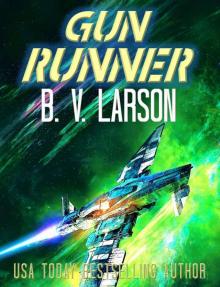 Gun Runner
Gun Runner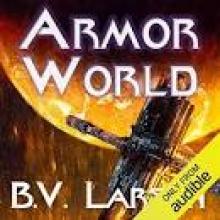 Armor World
Armor World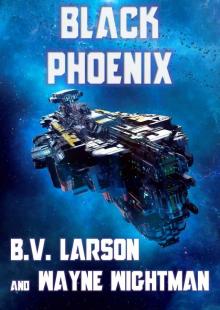 Black Phoenix
Black Phoenix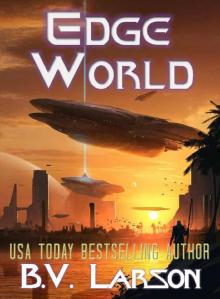 Edge World (Undying Mercenaries Series Book 14)
Edge World (Undying Mercenaries Series Book 14)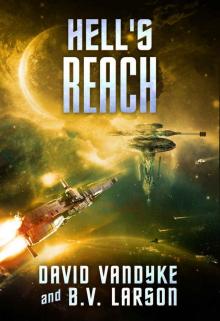 Hell's Reach (Galactic Liberation Series Book 6)
Hell's Reach (Galactic Liberation Series Book 6)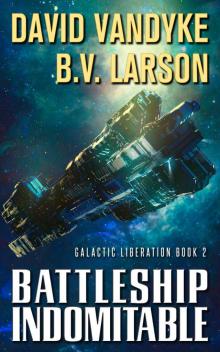 Battleship Indomitable
Battleship Indomitable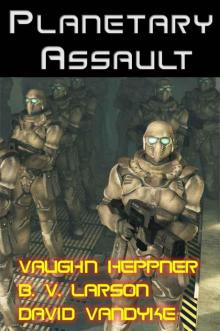 Planetary Assault (Star Force Series)
Planetary Assault (Star Force Series)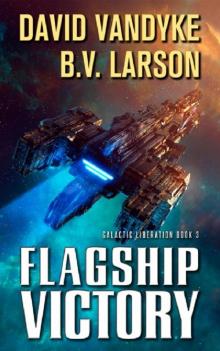 Flagship Victory (Galactic Liberation Book 3)
Flagship Victory (Galactic Liberation Book 3)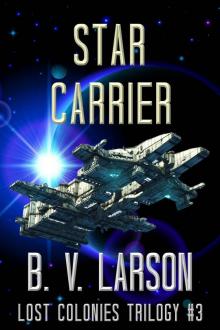 Star Carrier (Lost Colonies Trilogy Book 3)
Star Carrier (Lost Colonies Trilogy Book 3)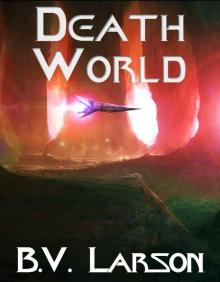 Death World (Undying Mercenaries Series Book 5)
Death World (Undying Mercenaries Series Book 5)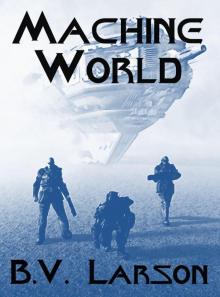 Machine World (Undying Mercenaries Book 4)
Machine World (Undying Mercenaries Book 4) Mech 2
Mech 2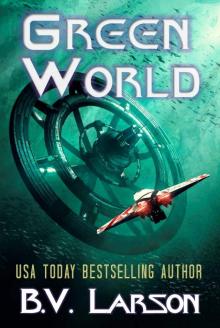 Green World
Green World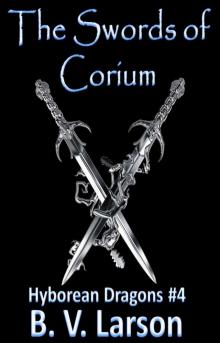 The Swords of Corium
The Swords of Corium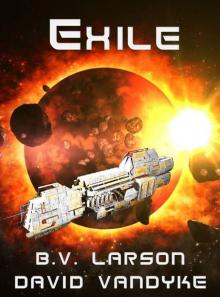 Star Force 11: Exile
Star Force 11: Exile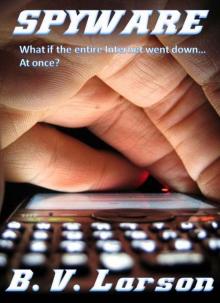 SPYWARE BOOK
SPYWARE BOOK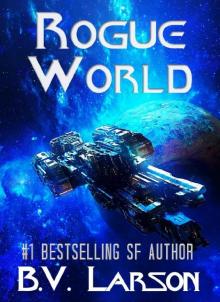 Rogue World (Undying Mercenaries Series Book 7)
Rogue World (Undying Mercenaries Series Book 7)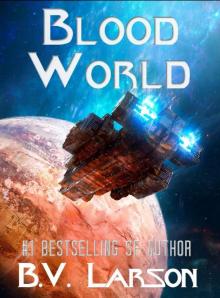 Blood World (Undying Mercenaries Series Book 8)
Blood World (Undying Mercenaries Series Book 8)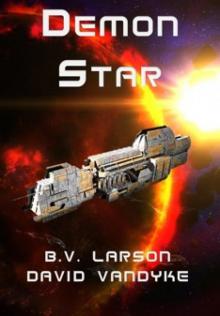 Demon Star
Demon Star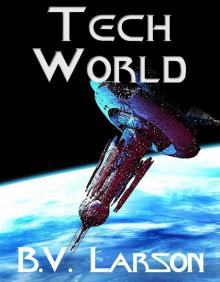 Tech World (Undying Mercenaries Series)
Tech World (Undying Mercenaries Series)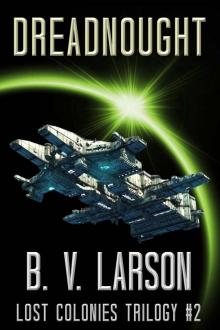 Dreadnought (Lost Colonies Trilogy Book 2)
Dreadnought (Lost Colonies Trilogy Book 2) Shifting
Shifting To Dream with the Dragons (Hyborean Dragons)
To Dream with the Dragons (Hyborean Dragons)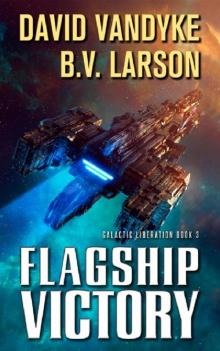 Flagship Victory
Flagship Victory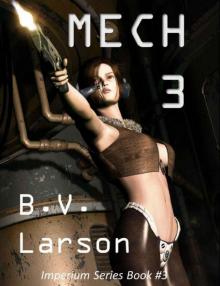 Mech 3: The Empress
Mech 3: The Empress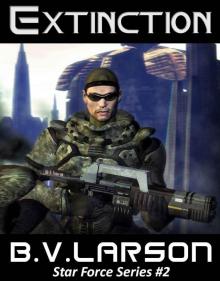 Extinction Ebook Full
Extinction Ebook Full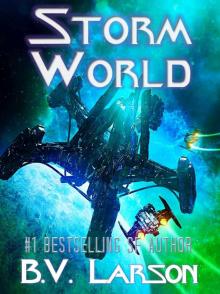 Storm World (Undying Mercenaries Series Book 10)
Storm World (Undying Mercenaries Series Book 10)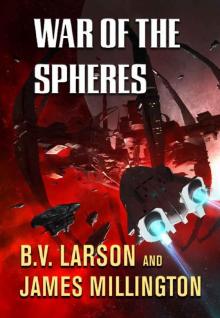 War of the Spheres
War of the Spheres MECH EBOOK
MECH EBOOK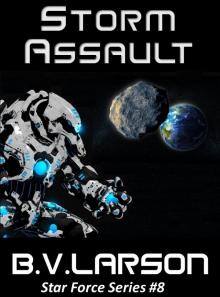 Storm Assault (Star Force Series)
Storm Assault (Star Force Series)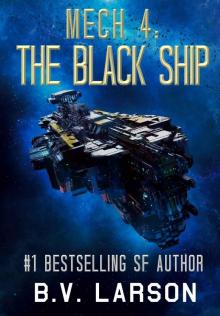 Mech 4: The Black Ship (Imperium Series Book 5)
Mech 4: The Black Ship (Imperium Series Book 5)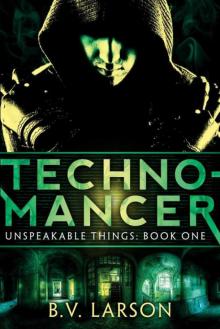 Technomancer
Technomancer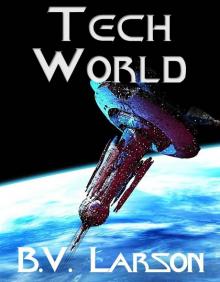 Tech World
Tech World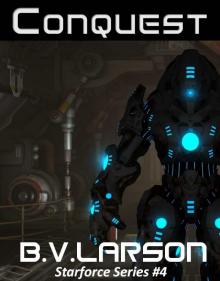 Conquest (Star Force Series)
Conquest (Star Force Series)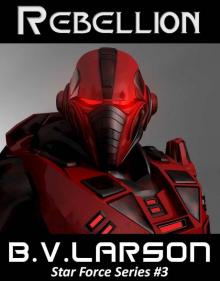 Rebellion sf-3
Rebellion sf-3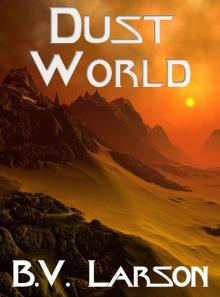 Dust World
Dust World The Dragon Wicked
The Dragon Wicked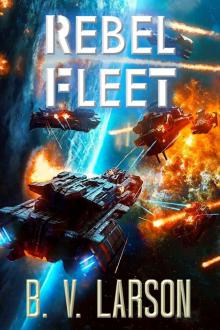 Rebel Fleet
Rebel Fleet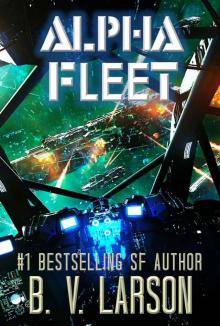 Alpha Fleet (Rebel Fleet Series Book 3)
Alpha Fleet (Rebel Fleet Series Book 3)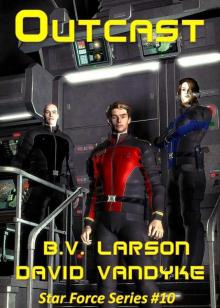 Star Force 10: Outcast
Star Force 10: Outcast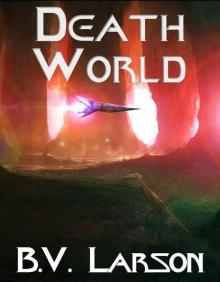 Death World
Death World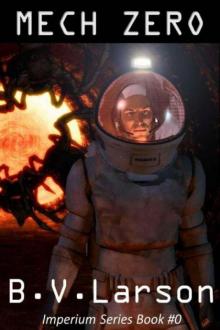 Mech Zero: The Dominant
Mech Zero: The Dominant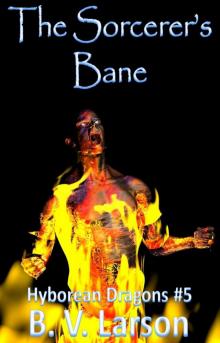 The Sorcerer's Bane
The Sorcerer's Bane Battleship Indomitable (Galactic Liberation Book 2)
Battleship Indomitable (Galactic Liberation Book 2) Haven Magic
Haven Magic Amber Magic (Haven Series #1)
Amber Magic (Haven Series #1)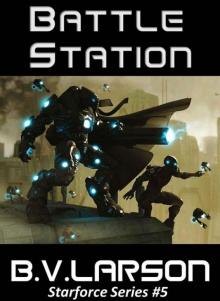 Battle Station sf-5
Battle Station sf-5 Of Shadows and Dragons
Of Shadows and Dragons Starfire
Starfire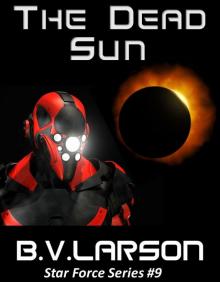 The Dead Sun (Star Force Series)
The Dead Sun (Star Force Series)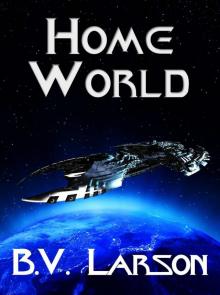 Home World (Undying Mercenaries Series Book 6)
Home World (Undying Mercenaries Series Book 6)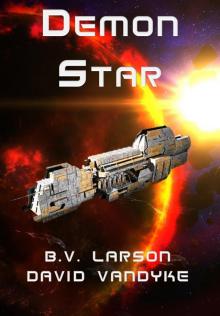 Star Force 12 Demon Star
Star Force 12 Demon Star Dream Magic
Dream Magic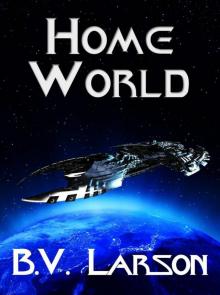 Home World
Home World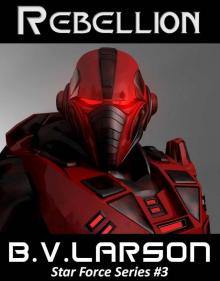 Rebellion Ebook Full
Rebellion Ebook Full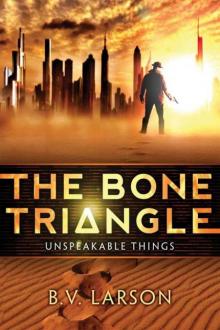 The Bone Triangle
The Bone Triangle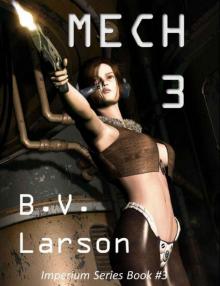 The Empress i-3
The Empress i-3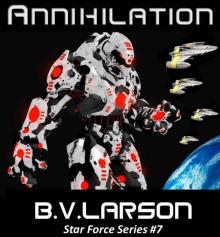 Annihilation (Star Force Series)
Annihilation (Star Force Series)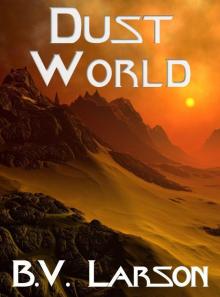 Undying Mercenaries 2: Dust World
Undying Mercenaries 2: Dust World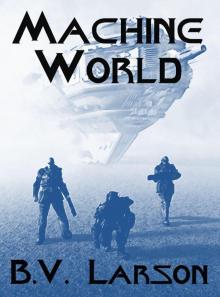 Machine World
Machine World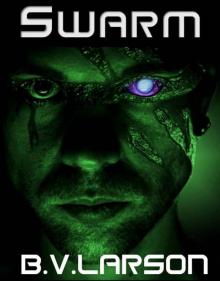 Swarm
Swarm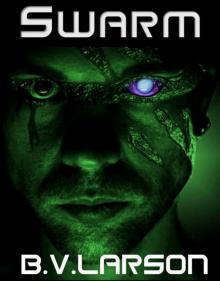 Swarm sf-1
Swarm sf-1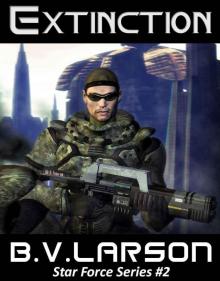 Extinction sf-2
Extinction sf-2 Amber Magic h-1
Amber Magic h-1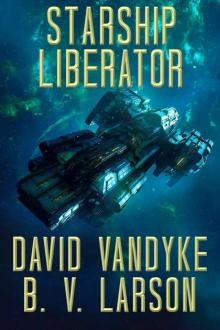 Starship Liberator
Starship Liberator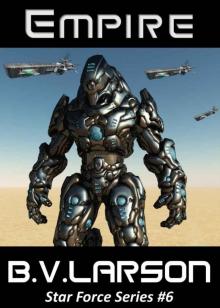 Empire Ebook Full
Empire Ebook Full The Dragon-Child
The Dragon-Child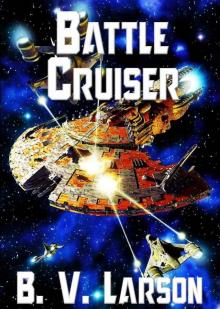 Battle Cruiser
Battle Cruiser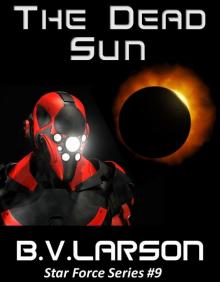 The Dead Sun
The Dead Sun Velocity
Velocity Creatures
Creatures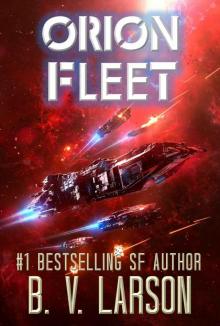 Orion Fleet (Rebel Fleet Series Book 2)
Orion Fleet (Rebel Fleet Series Book 2)